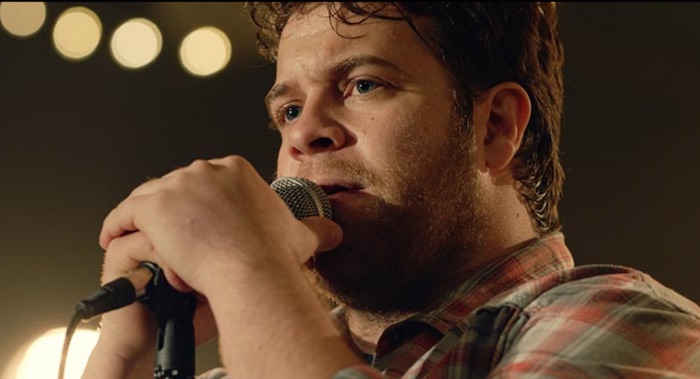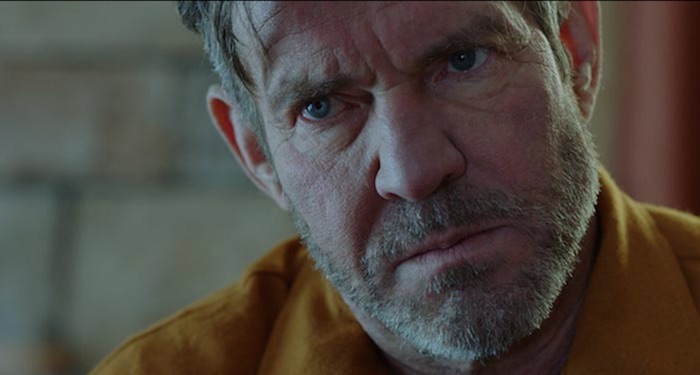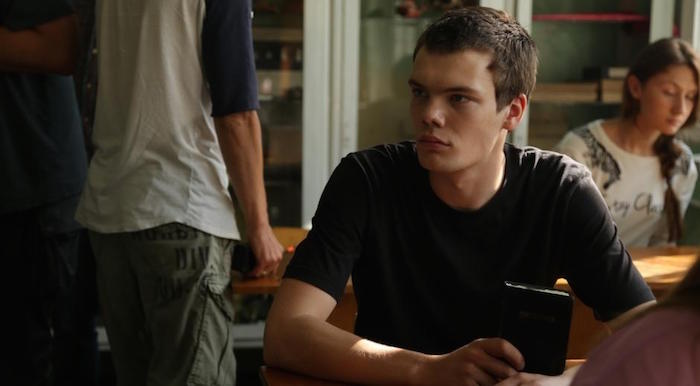I CAN ONLY IMAGINE
 Friday, March 23, 2018 at 5:30PM
Friday, March 23, 2018 at 5:30PM Stars: J. Michael Finley, Madeline Carroll, Trace Adkins, Priscilla Shirer, Cloris Leachman, Nicole DuPort and Dennis Quaid.
Writers: Jon Erwin, Brent McCorkle
Directors: Jon and Andrew Erwin
Rating: 3/5

I Can Only Imagine is the celebration of the creation of a song that celebrates The Creator. The backstory to how the debut single of faith-pop outfit Mercy Me became the biggest selling Christian chart topper in music history spins the same homespun country-music values and heartland religious earnestness as the anthemic ballad; in that regard, it preaches to the masses of wildly enthusiastic disciples, who cite the song’s soaring lyrics as spiritually enriching and life affirming.
Of its kind, I Can Only Imagine is a step-above recent faith-based films, partly due to slicker production values but also through the addition of some serious acting credibility in the form of Dennis Quaid. Opposite J Michael Finley, making his film debut as singer/songwriter Bart Millard, Quaid does some heavy lifting to give their scenes together the required depth. As Millard’s troubled father, the ageing heartthrob actor gets to run the gamut from abusive monster to bastion of Divine-led recovery, giving a performance that allows for glowering and yelling and door-slamming, before some A-talent tear-duct thesping. As has been the case for much of Quaid’s career, the charismatic star is immeasurably better than much of the material.
Leading man Finley is a prince in the world of musical theatre, having wowed in the Broadway productions of Les Miserables and Sweeney Todd but, tonal command aside, the actor feels frustratingly miscast as good ol’ boy Millard. Picture the high-low vocal register of a young Mandy Patinkin emanating from a flannel-clad dustbowl-bred Patton Oswalt, and you get some idea of the jarring aural and visual mismatch that the casting presents. The decision to also have the actor portray the character as far back as his high school years backfires badly (one support player yells at Millard to shave the beard, truthfully observing, “You look 35!”)

Directed assuredly by brothers Jon and Andrew Erwin, Millard’s resolutely vanilla-tinged journey from little-boy-with-dreams to anonymous-band-frontman to recording-industry-superstar is bathed in the warm glow of His guiding influence and touch of His loving hand (quite often literally, when moments of reflection or inspiration are shot in beams of descending light). The audience needs no reminding (but is afforded it nonetheless) that God constantly oversees Millard’s journey, whether in the form long-suffering Christian soul mate Shannon, played by grown-up child-star Madeline Carroll (Santa Clause 3; Swing Vote; Mr Popper’s Penguins), the world’s sweetest and most tolerant band manager Brickell (a fine Trace Adkins) or the Mercy Me band members, who seem pretty chill while waiting out Millard’s occasional petulance and tightly-focussed ambition.
It is all pure hagiography, as one must expect from a musical biopic overseen by the very musicians it depicts; co-scripted by Jon Erwin and Brent McCorkle, the narrative rarely lets the actual chronology of events get in the way of bolstering its own mythology. That said, I Can Only Imagine certainly captures the exaltation shared by the song’s legion of followers, and knowing one’s audience is always a blessing. The casting of remarkable lookalike Nicole Du Port as faith-based C&W angel Amy Grant reaffirms the productions’ understanding of and appreciation for Mercy Me’s fanbase.
Though it will never be championed as an insightful work of either religious art or patriarchal psychology, I Can Only Imagine does manage to be a good film about a great song. As expected from frame 1, Finley/Millard navigates a fully humanising redemptive round-trip by the end of Act 3, perfectly timed for the rousing cinematic treatment that the song thoroughly deserves (which was, I must confess, the first time I had heard it).
 Music,
Music,  True Story,
True Story,  faith-based,
faith-based,  religion
religion 

